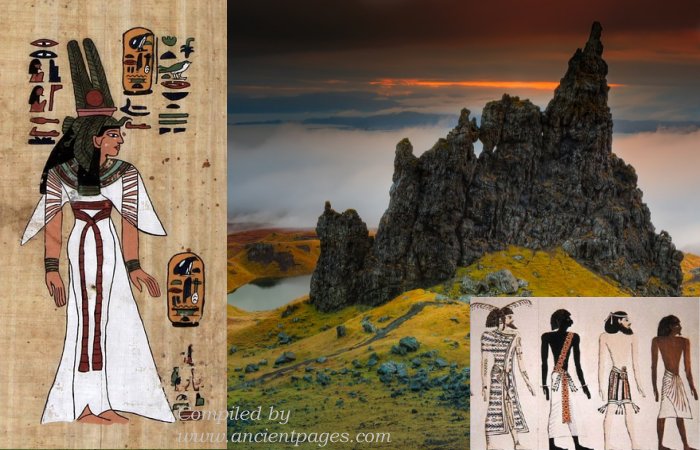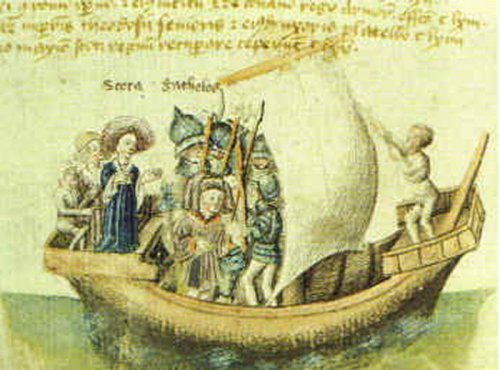Ancestors Of The Irish And Scots Came From Biblical Lands And Ancient Egypt – Myths, History And DNA
Ellen Lloyd - AncientPages.com - It has been suggested that the Irish and Scots are related to people from Biblical lands and ancient Egypt.
It is an exciting and thought-provoking theory, but is there any evidence supporting these claims?
Can examining mythological and historical sources and genetic data shed more light on this long-standing ancient mystery?
Did Pharaoh's Daughter Scota Visit Scotland And Ireland?
One part of this theory is based on old references to Scota, a daughter of an Egyptian pharaoh.
The Scots had long claimed that, before Brutus had come from Tory, Pharaoh's daughter Scota had come to the land she had given her name to.
The first mentions of Scota have been traced to the Irish chronicle Book of Leinster and a passage discovered in the Historia Brittonum. These works were created in the 12th and 11th centuries, and they briefly relate to how Scota married Geytholos (Goídel Glas), the founder of the Scots and Gaels, after being exiled from Egypt.
Whether Geytholos came from ancient Greece, Iberia, or Scythia is still unclear. Various ancient manuscripts connect him with different land making it difficult to understand where he came from.
The entire subject gets even more complicated because we are told there from the book Lebor Gabála Érenn (literally "The Book of the Taking of Ireland"), known in English as The Book of Invasions, was a second Scota who was married to a man named Niul.
An ancient Irish legend tells Niul was originally a Babylonian. He left his land after the destruction of the Tower of Babel. A pharaoh invited Niul to Egypt, and there he met Scota, whom he married. Together they traveled to Europe. Whether they settled in Ireland or Scotland has never been agreed upon, not even by Medieval writers and historians. We only know that Scota and Niul had a son named Goídel Glas, who is by some considered the founder of the Gaelic language. The grave of Scota (or Scotia's Grave) allegedly lies in a valley south of Tralee Town, Co. Kerry, Ireland.
It brings us to the next question – Why would ancient Egyptians visit Ireland or Scotland?
Scota (left) with Goídel Glas voyaging from Egypt, as depicted in a 15th-century manuscript of the Scotichronicon of Walter Bower; in this version, Scota and Goídel Glas (Latinized as Gaythelos) are wife and husband. Credit: Public Domain
"According to the most learned men among the Scotti, Ireland was desert and uninhibited when the children of Israel crossed the Red Sea, in which, as we read in the Book of the Law, the Egyptians who followed them were drowned.
At the time, there lived among his people, with numerous families, a Scythian of noble birth who did not pursue the people of God. The Egyptians who were left, seeing the destruction of the men of their nation, and fearing lest he should possess their territory, took counsel together and expelled him. At this point, in a gloss in several manuscripts of the Historia Brittonum, Scota – indeed the "dark lady" – for the name means in Greek shadow or darkness is encountered for the first time.
It is stated that the Scythian was the son-in-law of Pharaoh and the husband of Scythia. The account goes on to relate how the exile wandered for forty-two years in Africa, the land of the Philistines, and by way of Rusicada and Syria, the River Malva, and Mauritania to the Pillars of Hercules and Spain. One thousand and two years after the Egyptians were drowned in the Red Sea, his descendants crossed from Spain to Ireland and the district of Dalriada. At the time, Brutus rules over Romans." 1
Can these ancient historical accounts be genuine, or do we have reasons such events took place in the distant past?
Genetic And Archaeological Evidence Of Unknown People In Scotland And Ireland?
Some years ago, a ground-breaking study suggested that Scots are descendants of long-lost tribes from the Sahara. The same survey also revealed that Scots are closely related to Napoleon Bonaparte!
As previously reported, the results of the "Scotland's DNA" project "reveal the Scots to be much more diverse than was thought."
Several exciting groups were found. After testing DNA samples from almost 1,000 scots, researchers found that 1 percent of all Scots are descended from the Berber and Tuareg tribe members of the Sahara. Another 1% have a recent origin in Iberia, their ancestors having probably reached Britain via the trade in tin.
The study is based on research conducted by geneticist Dr. Jim Wilson and his team at Edinburgh University.
It may not be considered much evidence, but the results of the DNA study should not be dismissed without further investigations.
Another curious announcement was made in more recent years. Scientists announced ancient DNA reveals Irish are not Celts because Irish ancestors came from Biblical Lands.
Three ancient bodies discovered on Rathlin Island off Antrim were investigated, and the results were startling. Scientists said this particular discovery could completely rewrite the history of ancient Ireland.
Scientists examined the remains of these ancient people in Ireland and Britain. DNA results show the ancestors of modern Irish people predate the Celts' arrival on Irish shores by around 1,000 years.
Irish DNA existed in Ireland before the Celts ever set foot on the island.
"The genomes of the contemporary people in Ireland are older — much older — than we previously thought," Dan Bradley, a genetics professor at Trinity College, said.
On the other hand, in 2017, scientists presented the first genetic map of the people of Ireland. According to this genetic information, very subtle genetic DNA differences exist between people across the island.
"We find evidence of a west-Norwegian-like ancestry that we believe is a signature of the Norse Vikings. We also observe the impact of historical events such as the Ulster Plantations on the DNA of the people of Ireland," Edmund Gilbert (RCSI), first author of the paper, said.
The study does not mention any connection between Ireland and the Middle East, but this doesn't necessarily imply this ancient connection never took place.
One must remember that this genetic map was based on DNA samples taken from 196 Irish individuals with four generations of ancestry linked to specific areas across Ireland.
In other words, one cannot exclude the possibility that the Scots and Irish are distantly related to those who came from Biblical lands, and maybe the daughter of the Pharaoh did play a much more historical role in this part of the world than we have previously thought.
Written by - Ellen Lloyd – AncientPages.com
Updated on April 8, 2023
Copyright © AncientPages.com All rights reserved. This material may not be published, broadcast, rewritten or redistributed in whole or part without the express written permission of AncientPages.com
Expand for references- Cowan, Edward J. "Myth and Identity in Early Medieval Scotland." The Scottish Historical Review63, no. 176 (1984): 111-35.
- Matthews, "The Egyptians in Scotland: the Political History of a Myth”
More From Ancient Pages
-
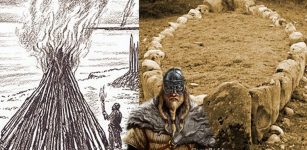 Ship-Shaped Burial Of Tjelvar – Legendary First Man Who Brought Fire To Gotland
Featured Stories | Feb 25, 2021
Ship-Shaped Burial Of Tjelvar – Legendary First Man Who Brought Fire To Gotland
Featured Stories | Feb 25, 2021 -
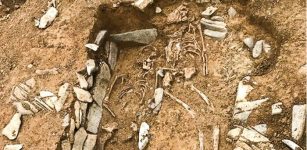 Skeleton Of An Ancient Roman Mercenary Buried With His Sword Discovered In South Wales
Archaeology | Apr 6, 2022
Skeleton Of An Ancient Roman Mercenary Buried With His Sword Discovered In South Wales
Archaeology | Apr 6, 2022 -
 Ancient Symbol Fleur-de-lis: It’s Meaning And History Explained
Ancient Symbols | May 19, 2020
Ancient Symbol Fleur-de-lis: It’s Meaning And History Explained
Ancient Symbols | May 19, 2020 -
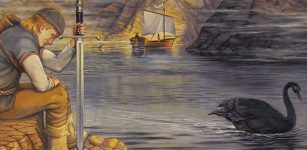 Lemminkainen: Mythical War-Hero Of Finnish Great Epic ‘Kalevala’
Featured Stories | Oct 14, 2016
Lemminkainen: Mythical War-Hero Of Finnish Great Epic ‘Kalevala’
Featured Stories | Oct 14, 2016 -
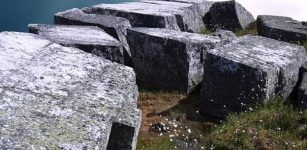 Mysterious Megaliths Of Russia May Offer Evidence Of An Ancient Advanced Lost Civilization
Ancient Technology | Jul 22, 2017
Mysterious Megaliths Of Russia May Offer Evidence Of An Ancient Advanced Lost Civilization
Ancient Technology | Jul 22, 2017 -
 Top 10 Discoveries About Our Ancient Ancestors In 2023
Archaeology | Dec 29, 2023
Top 10 Discoveries About Our Ancient Ancestors In 2023
Archaeology | Dec 29, 2023 -
 New Light On Foodways In The First Cities In Mesopotamia
Archaeology | Nov 21, 2022
New Light On Foodways In The First Cities In Mesopotamia
Archaeology | Nov 21, 2022 -
 Ancient City Of Metropolis: Ruins With Traces Of The Hittites, Hellenistic, Roman, Byzantine And Ottoman Empires
Archaeology | Jan 8, 2018
Ancient City Of Metropolis: Ruins With Traces Of The Hittites, Hellenistic, Roman, Byzantine And Ottoman Empires
Archaeology | Jan 8, 2018 -
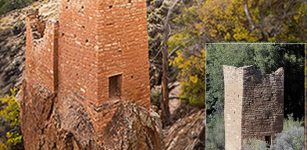 Ancient Ruins Of Hovenweep: Impressive Puebloan Masonry
Civilizations | Mar 15, 2016
Ancient Ruins Of Hovenweep: Impressive Puebloan Masonry
Civilizations | Mar 15, 2016 -
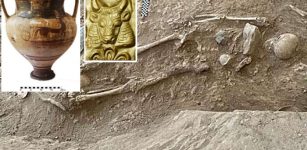 Tombs Rich In Artifacts Discovered By Swedish Expedition In Cyprus
Archaeology | Jul 6, 2023
Tombs Rich In Artifacts Discovered By Swedish Expedition In Cyprus
Archaeology | Jul 6, 2023 -
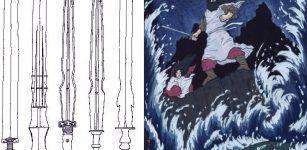 Sacred Regalia Of Japanese Emperor: Sword, Mirror And Jewel In Ancient Japanese Tradition
Artifacts | Sep 2, 2017
Sacred Regalia Of Japanese Emperor: Sword, Mirror And Jewel In Ancient Japanese Tradition
Artifacts | Sep 2, 2017 -
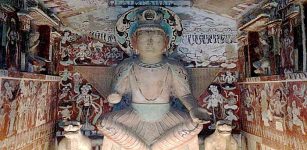 Mogao Grottoes, Dunhuang, China – Fascinating Statues, Manuscripts And Wall Paintings
Featured Stories | Dec 15, 2015
Mogao Grottoes, Dunhuang, China – Fascinating Statues, Manuscripts And Wall Paintings
Featured Stories | Dec 15, 2015 -
 Notre Dame Is On Fire! Can The Magnificent Cathedral Still Be Saved?
News | Apr 15, 2019
Notre Dame Is On Fire! Can The Magnificent Cathedral Still Be Saved?
News | Apr 15, 2019 -
 Fatocuriosos.club Guilty Of Hundreds Of Copyright Violations Is Stealing Content Daily From AncientPages.com
News | Sep 22, 2022
Fatocuriosos.club Guilty Of Hundreds Of Copyright Violations Is Stealing Content Daily From AncientPages.com
News | Sep 22, 2022 -
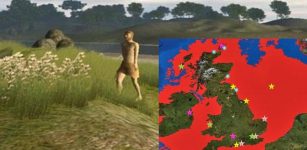 DNA From Doggerland That Separates The UK From Europe – New Study
Archaeology | Jul 20, 2020
DNA From Doggerland That Separates The UK From Europe – New Study
Archaeology | Jul 20, 2020 -
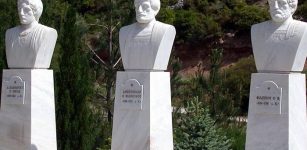 Aristotle’s Influence On Education Of Alexander The Great – Historical Encounter Of Two Famous Men
Featured Stories | Dec 24, 2018
Aristotle’s Influence On Education Of Alexander The Great – Historical Encounter Of Two Famous Men
Featured Stories | Dec 24, 2018 -
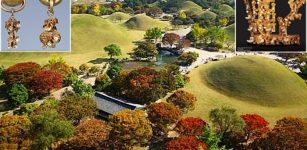 Silla: The Most Successful Of Three Korean Kingdoms
Featured Stories | Aug 22, 2023
Silla: The Most Successful Of Three Korean Kingdoms
Featured Stories | Aug 22, 2023 -
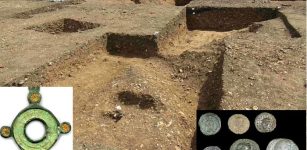 Incredible Ancient Roman ‘Service Station’ With Hundreds Of Artifacts And Dozens Bodies Found In Hertfordshire, UK
Archaeology | May 12, 2022
Incredible Ancient Roman ‘Service Station’ With Hundreds Of Artifacts And Dozens Bodies Found In Hertfordshire, UK
Archaeology | May 12, 2022 -
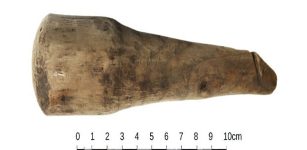 Unique Roman Artifact Discovered At Vindolanda Was More Than A Good Luck Charm
Archaeology | Feb 20, 2023
Unique Roman Artifact Discovered At Vindolanda Was More Than A Good Luck Charm
Archaeology | Feb 20, 2023 -
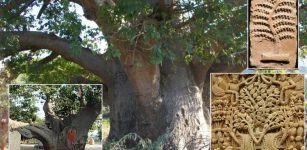 Kalpa Tree ‘Kalpavriksha’: The Sacred Wishing Tree Has Been Object Of Adornment And Worship Since Ancient Times
Featured Stories | Jul 22, 2016
Kalpa Tree ‘Kalpavriksha’: The Sacred Wishing Tree Has Been Object Of Adornment And Worship Since Ancient Times
Featured Stories | Jul 22, 2016

